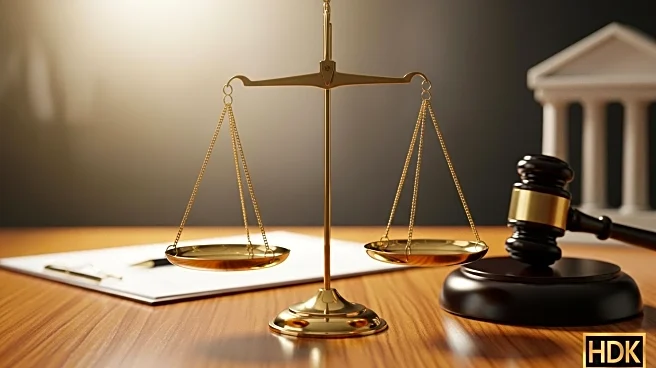What's Happening?
The U.S. Department of Justice has initiated legal action against the states of Maine and Oregon for their refusal to provide complete voter rolls to the federal government. This move is part of a broader effort by the Trump administration to assert federal oversight over state-managed election processes. Harmeet Dhillon, head of the DOJ's Civil Rights Division, emphasized that states must comply with federal voting laws to ensure equal access to the ballot. However, state officials, including Oregon's Secretary of State Tobias Read and Maine's Secretary of State Shenna Bellows, have resisted these demands, citing privacy concerns and potential federal overreach. The DOJ's request for unredacted voter information, which includes sensitive data like birth dates and partial Social Security numbers, has been met with widespread resistance from election officials nationwide.
Why It's Important?
This legal confrontation underscores the ongoing tension between state sovereignty and federal authority in managing elections. The outcome of this case could have significant implications for how voter data is handled and the extent of federal involvement in state elections. Critics argue that the DOJ's demands could infringe on privacy rights and state autonomy, while supporters claim it is necessary to prevent vote dilution and ensure electoral integrity. The case also highlights the political dynamics at play, as the Trump administration seeks to influence the electoral landscape ahead of the midterm elections, potentially affecting the balance of power in Congress.
What's Next?
The legal battle is expected to progress through the courts, with both states preparing to defend their positions. The outcome could set a precedent for future federal-state interactions regarding election management. Additionally, the case may prompt other states to reevaluate their policies on voter data sharing and privacy protections. Political leaders and civil rights organizations are likely to weigh in, potentially influencing public opinion and policy decisions.









